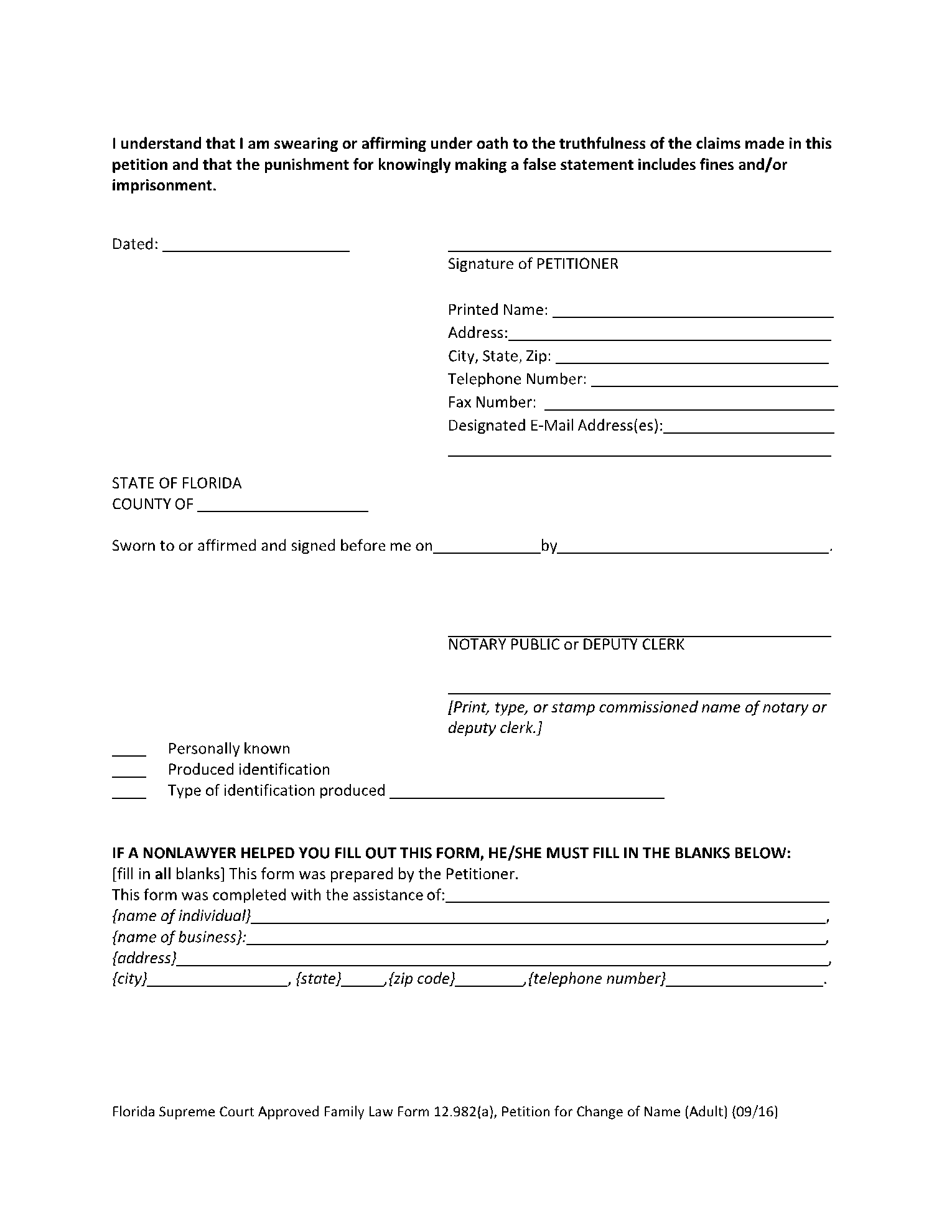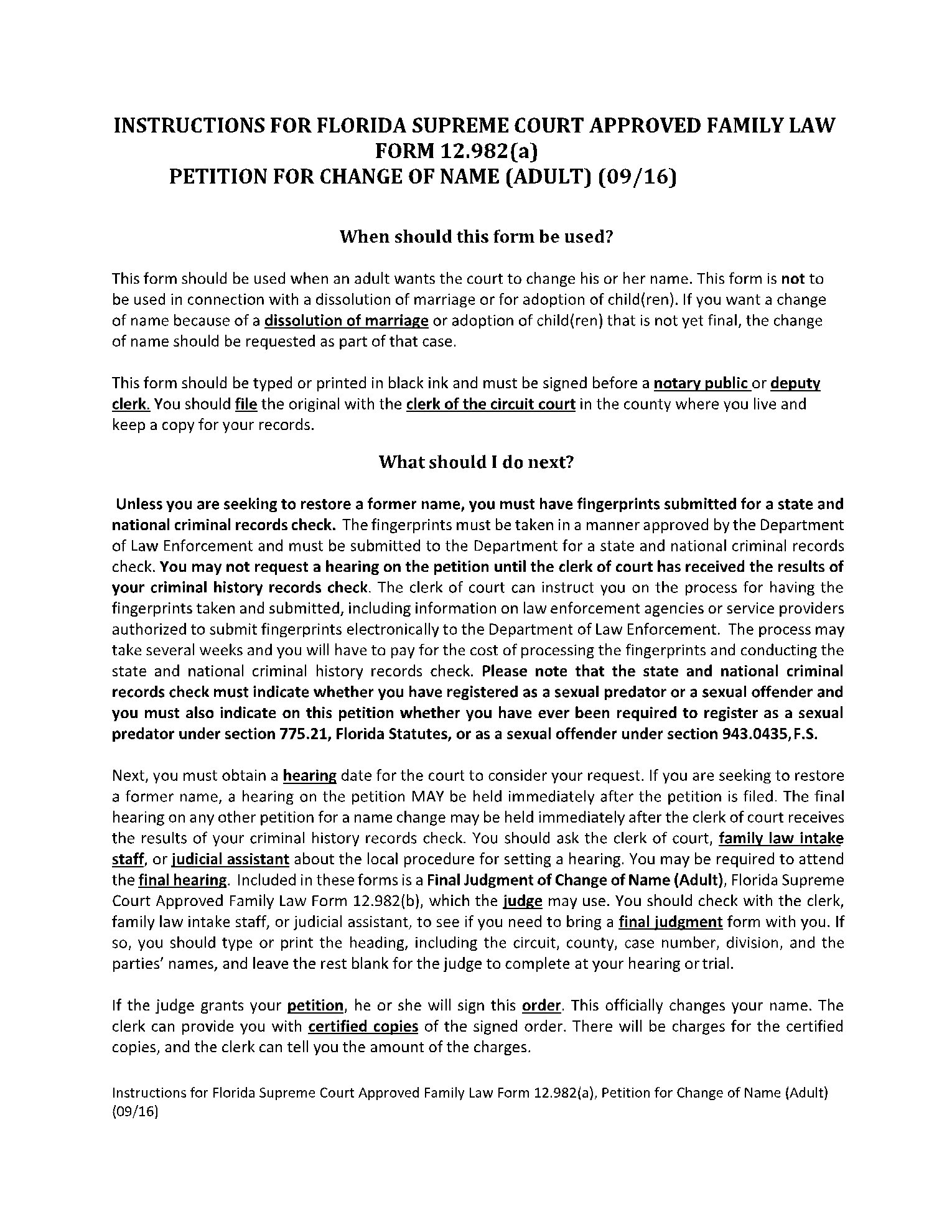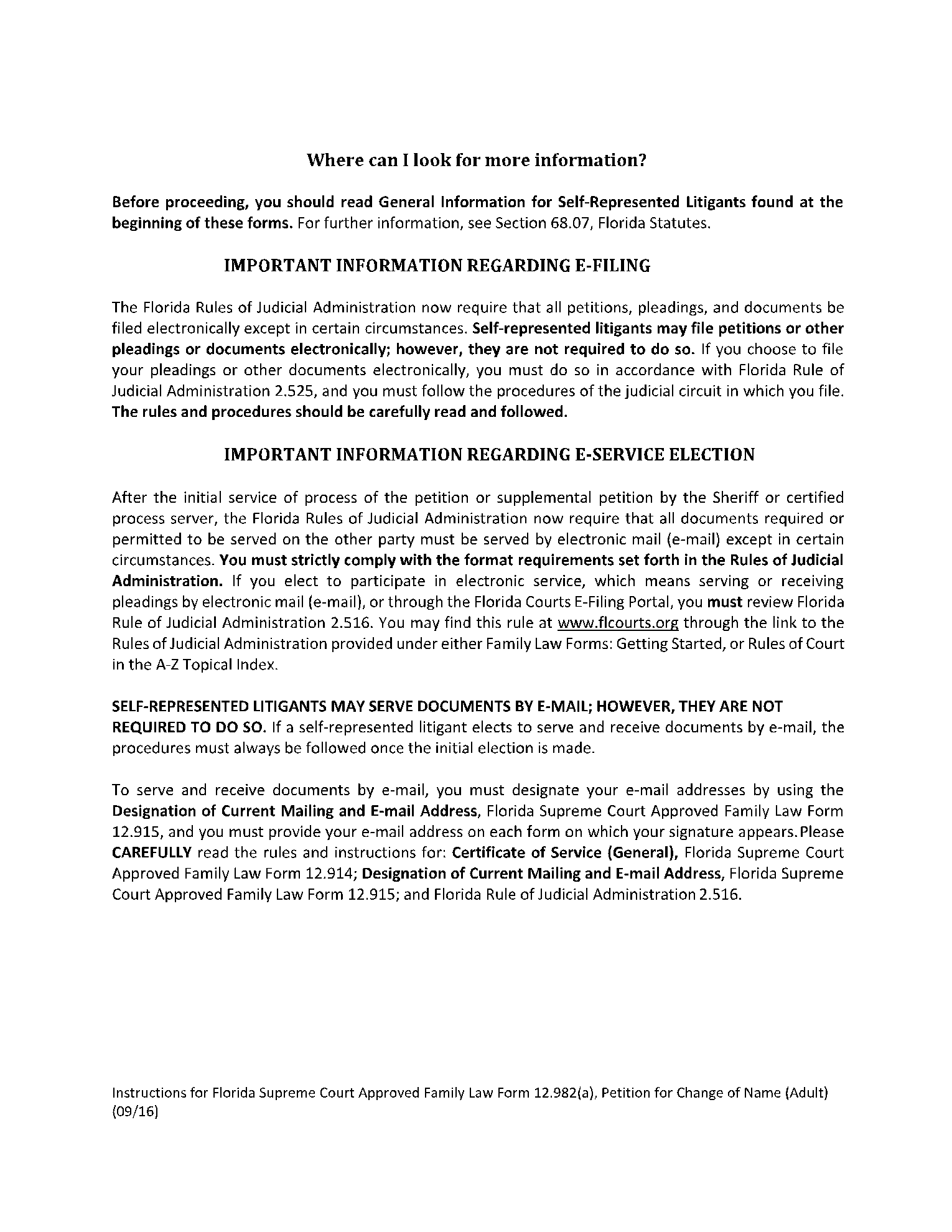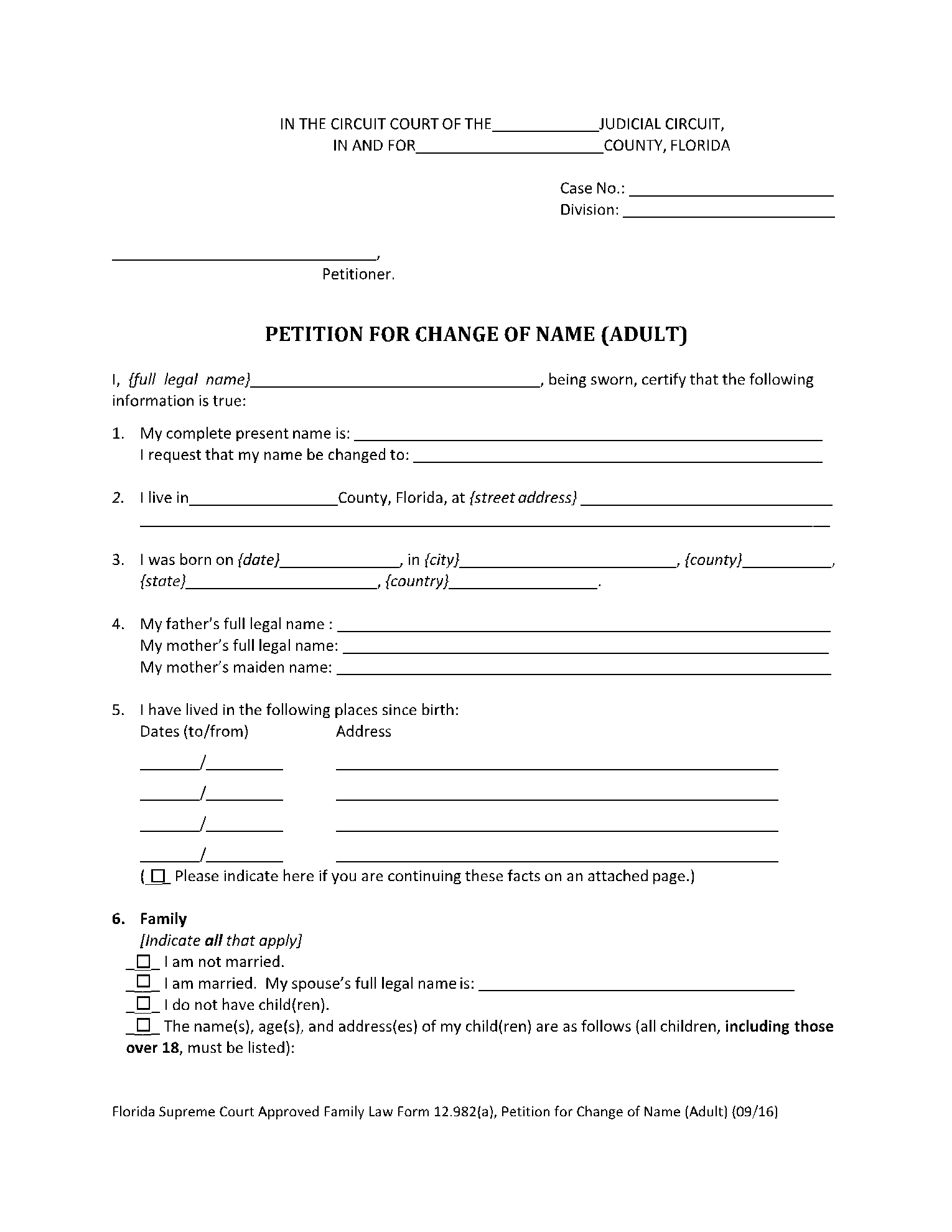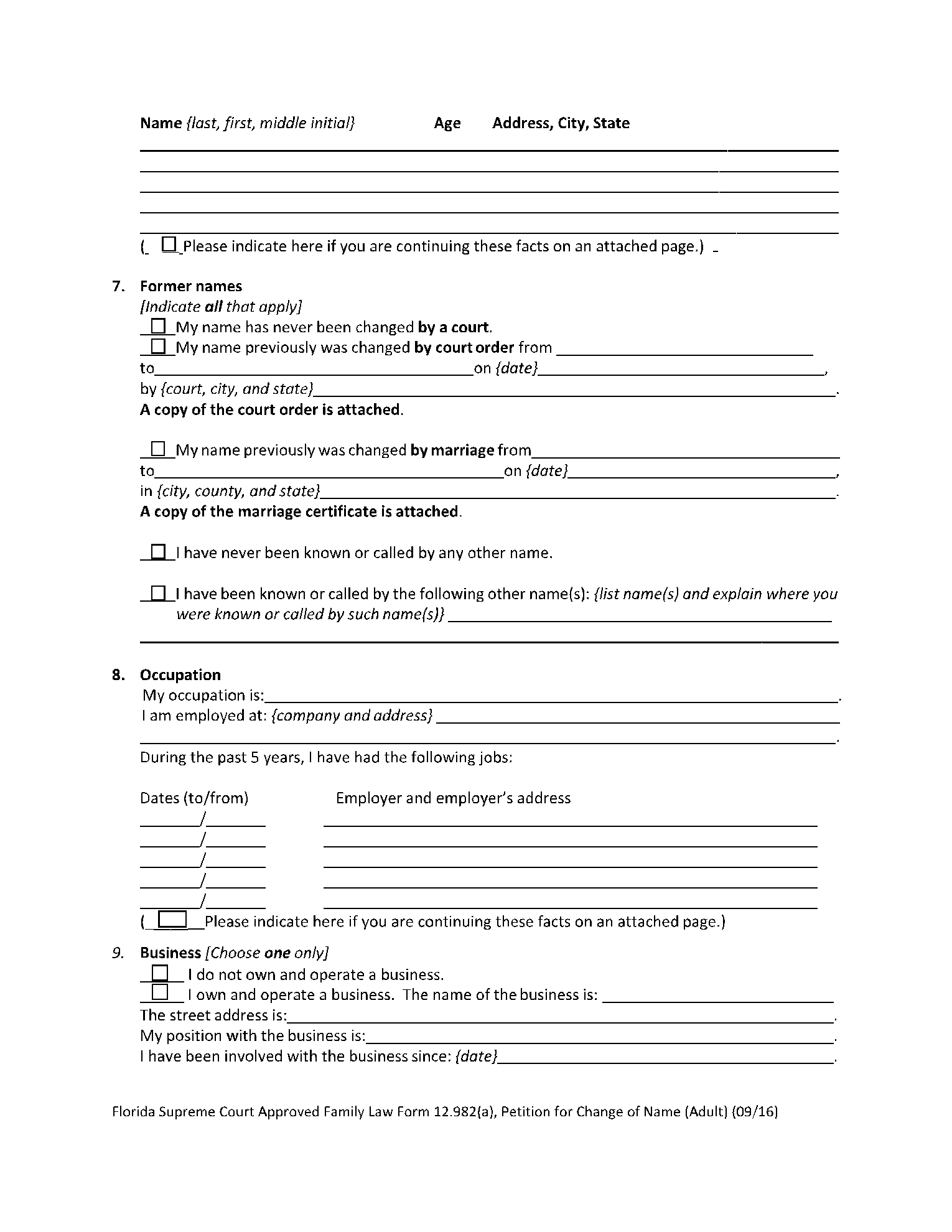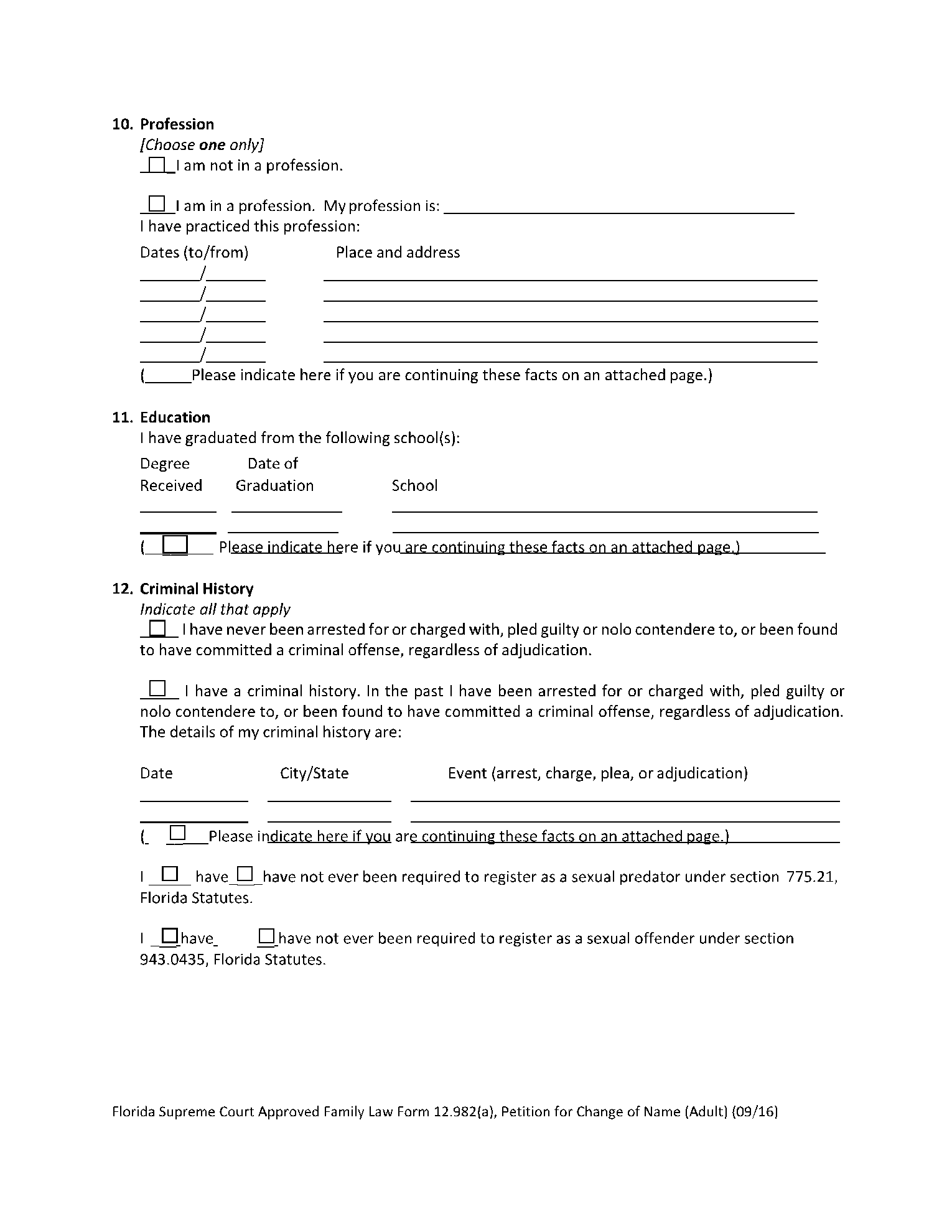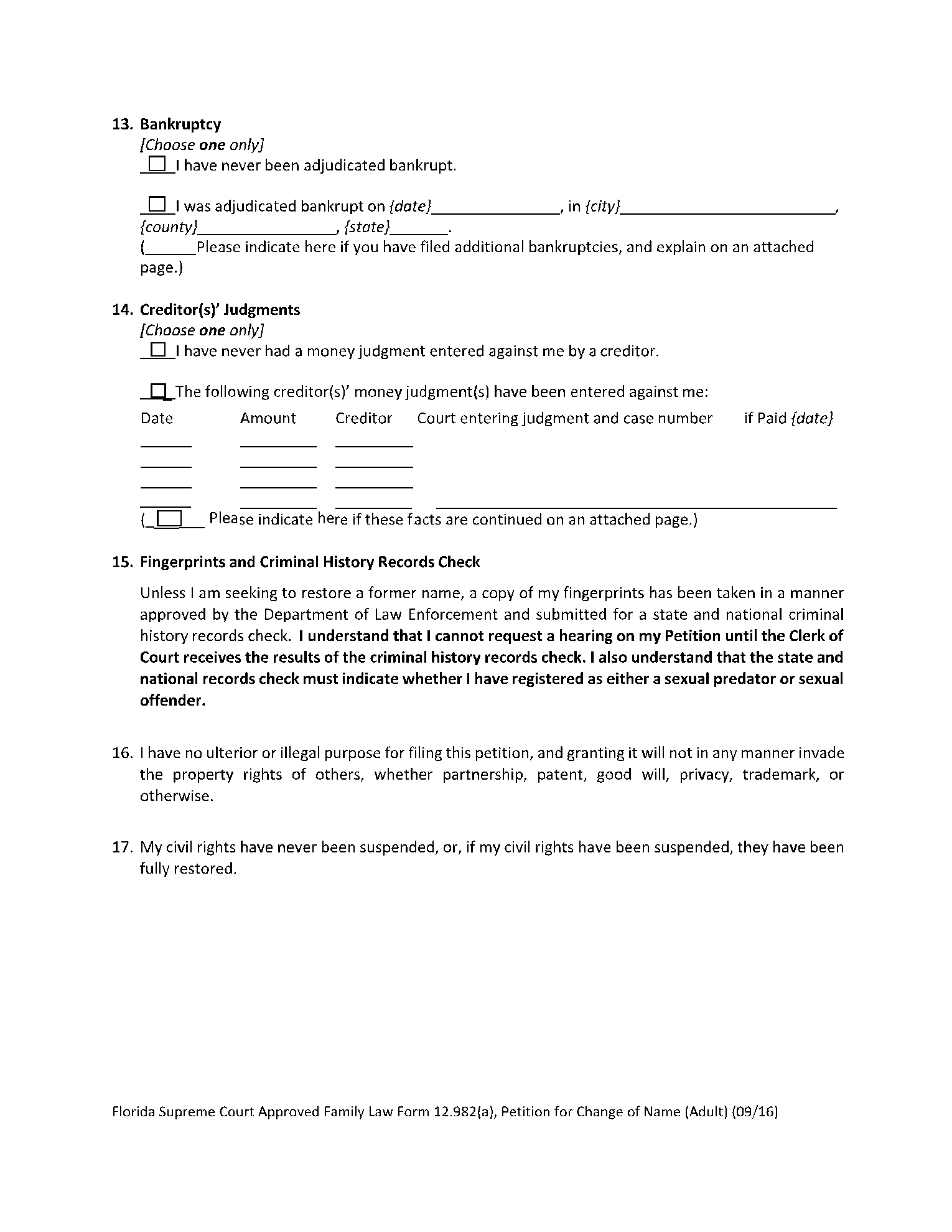There are many reasons for which a person would legally like to change their names. If you need to change your name in Florida, you need to follow a legal procedure that also involves submitting name change forms.
Here is how you can get your name changed in Florida.
The name change Florida template should include the following information:
- An attestation declaring that the name change is not being requested to conduct fraud or a crime.
- Sign on a notarized form consenting to the current name change or be present at the hearing date if you are a minor.
- Previous name.
- New name.
What Is a Florida Name Change Form & How Does It Work?
There is a specific process every person in Florida who wants to name their name needs to go through. You are required to fill up a Florida name change form enlisting all your details like old name, new name, the reason for the name change, and so on.
Florida follows a comprehensive change name process and starts with a background check, filing the petition, reflecting them into social security cards, and few other rules to follow.
How to Legally Change Your Name in Florida?
- Background check
Florida laws trust no one, and therefore you will have to go through a mandatory background check to check your criminal history and submit your fingerprints with the Law Enforcement Department of Florida.
- Filling and signing the petition
Next, you got to prepare documents for filing the petition. This includes your work history details, school history, marriage certificate if you are married, and other necessary personal information.
This is also when you need to fill out the name change form of Florida. Once the petition is formed, sign it in the presence of the notary.
Next, file your petition (without an appointment) with the courthouse in the country you reside in. Make two copies of the same and pay the required fees.
- Attend and Reflect
Next, you will be called to attend the hearing. Make sure you take a filled name change form to court. Once the Judge approves it, you can get the name change reflected in your various social security cards like DMV, passport and so on.
What Are The Common Name Change Cases in Florida?
The very common Florida name change cases arise after marriage and divorce. When a woman wants to take over his husband’s name, he needs to get the name changed legally. Similarly, during the divorce, if the woman wants to get back to his original name, she needs to get his name changed again before the divorce is finalized.
Other cases include a minor getting a name changed due to custodial reasons. However, it is important to mention that a minor name change follows a more complicated process in Florida.
Limitations and Requirements in Changing Names in Florida
Name change Florida requires you to meet a set of eligibility criteria:
- You should currently be a resident of Florida
- You should file the name change in the court of the country you reside in.
- You can be a minor or above 18 years of old
- Your civil rights must not be suspended while filing for the name change. To file for the name change, your civil rights should be restored
- You should not have any ulterior motive behind the name change.
- You name change will not invade your property rights, goodwill, trademark, and patent partnership in any way
- In case of the minor name change, written consent of all the adults who retain the legal rights over the child should be provided
In case of name change in Florida after marriage, the petitioner should have an original or certified marriage certificate and doesn’t require to file a petition of a name change.
In case of legal name change Florida after divorce, it is advisable to get the name changed during the process of divorce by issuing a separate document with the changed name.
You can get an array of Florida name change forms on CocoSign. The platform provides numerous name change forms and various other templates and documents for you to customize, download, and print. Check out now.
